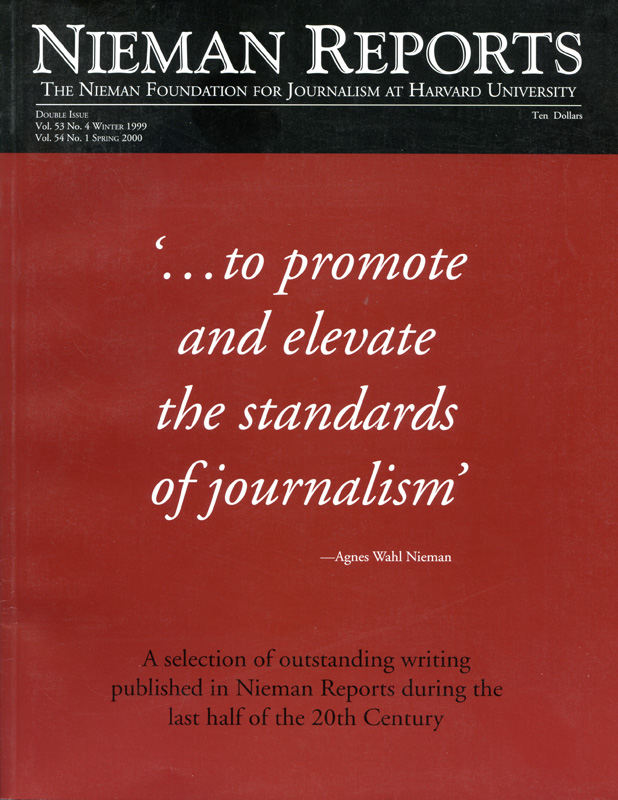[This article originally appeared in the Summer 1986 issue of Nieman Reports.] For whom do reporters write? For the readers?
Well, yes and no.
After two years inside a daily newspaper, I have concluded that among the hundreds of stories each day, there are a few shaped and targeted largely for the eyes of editors of other newspapers.
The “we got it first” boast is a standard ingredient in newspaper conversations. It was tradition when I was reporting and editing at the Post 35 years ago, and time has not diminished its hold. Editors’ competitive juices run fastest when primed by an exclusive. That’s when you see the closed-door story huddles, the staff lawyers poring over every word, the newsroom speculating about what’s up.
Do most readers know or care? I doubt it.
This is an exercise in one-upmanship, played out on the front pages for a journalistic audience.
True, it pushes reporters and editors to dig deeply, to overcome cover-ups and stonewalling, in order to alert readers to facts that sources have chosen to keep hidden. Recent history has shown the Post does the job well, “watchdogging” the public and private sectors—Watergate, the Pentagon papers, Sen. Joe McCarthy or the current Pentagon procurement excesses. The paper has had the courage to print in the face of threats, court proceedings, and some public disfavor.
But is there a downside? Are some stories overplayed simply because a reporter got it first? Are some published even though they are fragments? Are some rushed to print without adequate effort to give the target a chance to respond?…
Is there a danger of a newspaper’s being “used” by a leak-master to discredit a rival or to advance a cause? The source has all the advantages—anonymity, more attention than if he held a news conference, and a friendly report by a writer who may feel an obligation. The poor reader is rarely alerted as to why the story was leaked, because this may give away the source.
The preoccupation with “first” also affects how the Post deals with stories appearing first in another paper. There is a tendency to discredit or play down—for example, last year’s KGB spy defector story.…
Most readers are oblivious to the intramural contests. They read only one paper—New York City papers don’t carry Washington grocery ads or theater times—and readers don’t sit around keeping score on which paper has more “firsts” than another.
A democracy is dependent upon the media for information, information that tells both the bad and the good, of achievement and incompetency, about the decent and the indecent. But editors on all papers have to make sure that the lure of an exclusive story or the added sparkle to a contest entry doesn’t lead to shortchanging the readers.
Take a little longer, but get it all, put it in perspective, give all sides a chance, maybe even force the source to put down the mask. And, if some other newspaper does come up with the story, rise above the sophomoric response. In an era of newspaper monopoly, or near-monopoly, there should be secure editors. If a story appears a day or two later, few Post readers will know or long remember.
Sam Zagoria is a 1955 Nieman Fellow. He is Ombudsman for The Washington Post. ©1986, The Washington Post Writers Group. Reprinted with permission.

